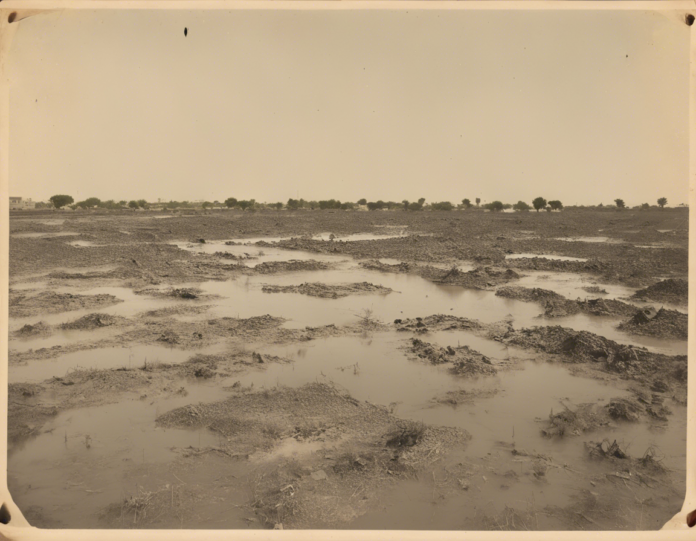Introduction
In recent years, the city of Bikaner in the northwestern state of Rajasthan, India, has been facing a unique and worrying phenomenon – land sinking. This issue has not only raised concerns among the residents of the city but has also attracted the attention of scientists and environmentalists. In this comprehensive article, we will delve into the causes, impacts, and potential solutions to the Bikaner land sinking problem.
What is Land Sinking?
Land sinking, also known as land subsidence, is the gradual settling or sinking of the Earth’s surface. This phenomenon can be caused by various factors, both natural and anthropogenic. In the case of Bikaner, the land sinking is primarily attributed to excessive groundwater extraction for agricultural, industrial, and domestic purposes.
Causes of Land Sinking in Bikaner
-
Overexploitation of Groundwater: One of the primary reasons for land sinking in Bikaner is the overexploitation of groundwater. As the water is extracted from underground aquifers at a faster rate than it can be replenished, the land above these aquifers starts to sink or settle.
-
Geological Factors: Bikaner is situated in a region with geological features that are prone to land sinking. The presence of soft sediments and clayey soils makes the area more susceptible to subsidence.
-
Urbanization and Construction: Rapid urbanization and extensive construction activities in Bikaner have also contributed to the land sinking problem. The heavy structures built on the weakened ground can further accelerate the sinking process.
Impacts of Land Sinking
-
Damage to Infrastructure: Land sinking can cause significant damage to infrastructure such as roads, buildings, and pipelines. The uneven settling of the land can lead to cracks and structural instability.
-
Waterlogging and Flooding: In areas where the land has sunk significantly, waterlogging and flooding become common occurrences. This can have detrimental effects on agriculture, ecosystems, and human settlements.
-
Loss of Agricultural Land: As the land sinks, agricultural productivity in the region can decline. Farmers may face challenges in water availability and crop cultivation, leading to economic losses.
Monitoring and Mitigation Measures
-
Groundwater Management: Implementing sustainable groundwater management practices is crucial to addressing the land sinking issue in Bikaner. This involves regulating water extraction, promoting water conservation, and exploring alternative water sources.
-
Geospatial Technology: Remote sensing and geospatial technology can be utilized to monitor land subsidence in real-time. By using satellite imagery and ground-based sensors, authorities can track changes in the land surface and take timely action.
-
Infrastructure Resilience: Designing infrastructure that is resilient to land sinking is essential. Engineers and urban planners can use innovative construction techniques and materials to minimize the impact of subsidence on buildings and roads.
Conclusion
The land sinking phenomenon in Bikaner serves as a stark reminder of the consequences of unchecked groundwater extraction and unsustainable development practices. It is imperative for the local authorities, stakeholders, and residents to work together to address this pressing issue and ensure the long-term sustainability of the region. By implementing proactive measures and raising awareness about the impacts of land sinking, it is possible to mitigate its effects and safeguard the future of Bikaner.
FAQs
- What are the signs of land sinking that residents of Bikaner should watch out for?
-
Signs of land sinking include cracks in buildings, uneven roads, and sinking foundations. Residents should report any such observations to the authorities.
-
Can land sinking in Bikaner be reversed?
-
While reversing land sinking entirely may not be feasible, implementing sustainable water management practices can help slow down or prevent further subsidence.
-
Is land sinking a common phenomenon in other parts of India?
-
Yes, land sinking is observed in various regions across India, especially in areas with excessive groundwater extraction and poor soil conditions.
-
How does land sinking affect the quality of drinking water in Bikaner?
-
Land sinking can lead to the contamination of groundwater sources, affecting the quality of drinking water. Proper water treatment measures should be in place to ensure safe drinking water.
-
Are there any government initiatives to address the land sinking issue in Bikaner?
- The local government in Bikaner, along with environmental agencies, is working on developing policies and strategies to tackle the land sinking problem effectively. Collaboration with experts and stakeholders is essential for sustainable solutions.



